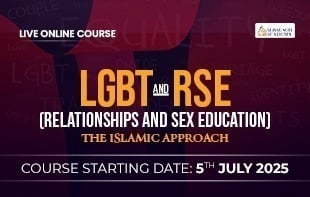(Associate Professor of Arabic & Islamic Studies and Director of the Arabic Language Program at Brandeis University)
Dr Carl Sharif El-Tobgui
Dr. Carl Sharif El-Tobgui is an esteemed Associate Professor of Arabic & Islamic Studies at Brandeis University, where he also serves as the Director of the Arabic Language Program in the Department of Near Eastern and Judaic Studies. With a PhD and MA from McGill University and a BS from Georgetown University, Dr. El-Tobgui brings a wealth of academic expertise and a passion for Islamic thought, theology, law, and jurisprudence to his teaching and research.
As a scholar, Dr. El-Tobgui's primary focus is on Islamic intellectual history, particularly exploring the complex relationship between reason and revelation in Islamic theology and jurisprudence. His work has delved deeply into the writings of notable Islamic scholars, and he is currently completing a monograph study on Ibn Taymiyya’s (d. 1328) 10-volume work, Refutation of Contradiction Between Reason and Revelation. This significant project highlights Dr. El-Tobgui’s dedication to examining classical Islamic thought in relation to contemporary questions of faith, reason, and legal theory.
Academic Focus and Teaching:
Dr. El-Tobgui is passionate about Arabic language and has a profound love for Classical Arabic. As the Director of the Arabic Language Program, he is committed to guiding students through the intricacies of the Arabic language, fostering a deep appreciation for Arabic grammar, classical literature, and poetry. His teaching extends beyond language instruction to include courses such as Islam and the West, which explores the historical and intellectual interactions between Islamic and Western civilizations.
Dr. El-Tobgui regularly teaches middle and advanced Arabic courses, ensuring that his students gain both linguistic proficiency and an understanding of the cultural and historical context of the Arabic language. His approach to language education is not only about mastering grammar and vocabulary but also about engaging with classical Arabic texts in ways that reveal the richness of the Islamic intellectual tradition.
Research and Publications:
Dr. El-Tobgui’s research is widely respected in academic circles, particularly in the fields of Islamic theology and jurisprudence. His ongoing work on Ibn Taymiyya reflects his scholarly interest in how medieval Islamic scholars addressed key theological questions concerning the role of reason in understanding revelation. His analysis of Ibn Taymiyya's thought contributes to a broader understanding of how classical Islamic scholars navigated tensions between rational inquiry and scriptural interpretation.
This research is complemented by Dr. El-Tobgui’s broader exploration of Islamic law and jurisprudence, where he seeks to uncover the foundations of legal reasoning in the Islamic tradition. His forthcoming monograph promises to shed new light on the intellectual debates that have shaped Islamic legal theory over the centuries.
Selected Publications:
- Monograph (Upcoming): Refutation of Contradiction Between Reason and Revelation by Ibn Taymiyya (d. 1328)
Dr. El-Tobgui's publications not only contribute to the academic understanding of Islamic theology and jurisprudence but also serve as valuable resources for students and scholars interested in the historical development of Islamic thought.
Educational Background:
- PhD in Islamic Studies, McGill University
- MA in Islamic Studies, McGill University
- BS, Georgetown University
Key Areas of Expertise:
- Islamic Theology: Specializing in the role of reason and revelation in Islamic thought.
- Islamic Law and Jurisprudence: Deep knowledge of classical Islamic legal theory and its development.
- Classical Arabic Language: Expertise in Arabic grammar, literature, and poetry.
- Islamic-Western Intellectual Encounters: Teaching courses that explore the interaction between Islamic and Western traditions.
Community Engagement:
As an educator and scholar, Dr. El-Tobgui’s work is not confined to the university classroom. He is actively engaged in bridging the gap between academic Islamic studies and the broader public’s understanding of Islamic thought. His courses on Islam and the West reflect his commitment to fostering dialogue between cultures and civilizations, encouraging students to think critically about the intersections between faith, reason, and society.


